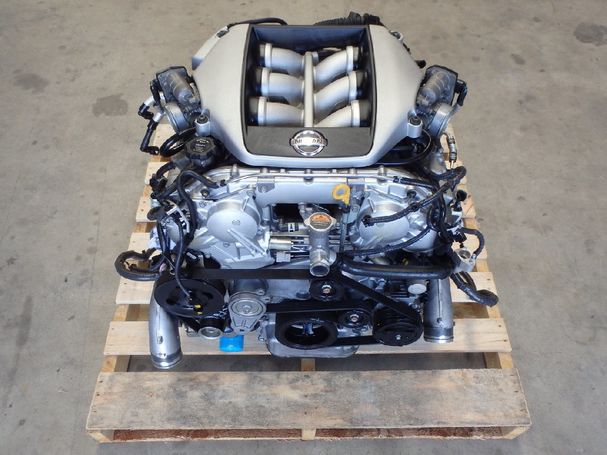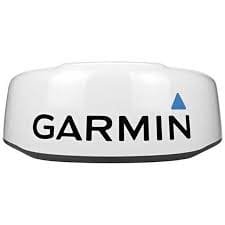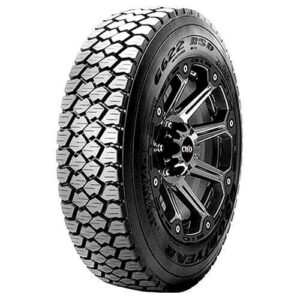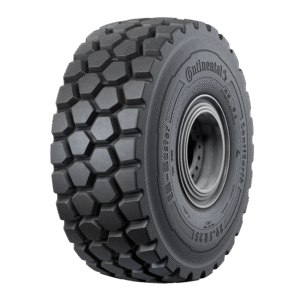vr38 engine for sale
If you’re searching for a VR38 engine for sale, you’re likely a performance enthusiast, tuner, or mechanic looking to drop one of the most iconic powerplants ever made into your next project. The Nissan VR38DETT engine is revered for its sheer power, durability, and tuning potential. Originally powering the Nissan GT-R (R35), this twin-turbocharged V6 has gained a cult following in the world of performance and motorsports.
VR38 Engine for Sale: The Ultimate Guide to Buying the Legendary GT-R Powerplant
If you’re searching for a VR38 engine for sale, you’re likely a performance enthusiast, tuner, or mechanic looking to drop one of the most iconic powerplants ever made into your next project. The Nissan VR38DETT engine is revered for its sheer power, durability, and tuning potential. Originally powering the Nissan GT-R (R35), this twin-turbocharged V6 has gained a cult following in the world of performance and motorsports.
In this comprehensive guide, we’ll explore everything you need to know about the VR38 engine, including specifications, performance, where to buy it, pricing, swap ideas, rebuild tips, and frequently asked questions.
Table of Contents
-
What is the VR38DETT Engine?
-
VR38DETT Engine Specs
-
Why is the VR38 Engine So Popular?
-
Common Applications and Engine Swaps
-
Where to Find VR38 Engines for Sale
-
Pricing Guide: How Much Does a VR38DETT Engine Cost?
-
New vs Used vs Rebuilt VR38 Engines
-
How to Inspect a VR38 Engine Before Purchase
-
Tuning and Aftermarket Support
-
FAQs About Buying a VR38 Engine
1. What is the VR38DETT Engine?
The VR38DETT is a 3.8-liter twin-turbocharged V6 engine developed by Nissan for the R35 GT-R, which debuted in 2007. It’s part of the VR engine family, replacing the older VQ series in Nissan’s performance lineup.
VR38DETT stands for:
-
VR – Engine family
-
38 – 3.8L displacement
-
DE – Dual overhead camshaft with electronic fuel injection
-
TT – Twin turbocharged
Hand-built by skilled engineers in Japan, each VR38 is crafted with precision, making it not just a high-performance unit but also a collector’s piece for GT-R lovers.
2. VR38DETT Engine Specs
Here’s a detailed breakdown of the VR38DETT engine’s specifications:
| Specification | Detail |
|---|---|
| Engine Code | VR38DETT |
| Displacement | 3.8L (3799cc) |
| Configuration | V6, DOHC, Twin-Turbocharged |
| Bore x Stroke | 95.5 mm × 88.4 mm |
| Compression Ratio | 9.0:1 (varies by model year) |
| Horsepower | 480–600+ hp (stock) |
| Torque | 430–481 lb-ft (stock) |
| Redline | 7000–7100 RPM |
| Fuel System | Multi-point electronic fuel injection |
| Turbochargers | IHI twin turbochargers |
| Material | Aluminum block with plasma-coated bores |
Depending on the GT-R model year (from 2009 to 2021+), these figures may vary slightly due to upgrades and tuning.
3. Why is the VR38 Engine So Popular?
The VR38DETT is more than just a high-horsepower engine—it’s a masterpiece of engineering. Here’s why it’s so sought after:
-
Massive Tuning Potential: Tuners have pushed VR38 builds well beyond 1000+ horsepower with forged internals and upgraded turbos.
-
Durability: Its robust aluminum block, integrated oil cooling system, and closed-deck design make it resistant to high pressure and stress.
-
Proven Track Record: Dominated time attack events, drag races, and endurance circuits.
-
Hand-Built Quality: Each engine is assembled by a “Takumi” master engine builder, ensuring top-notch quality control.
4. Common Applications and Engine Swaps
While originally found in the Nissan GT-R, the VR38 has made its way into many custom builds and swaps, including:
-
240SX (S13/S14)
-
350Z / 370Z (Fairlady)
-
Datsun 280Z
-
Infiniti G37
-
Off-road buggies
-
Drag race chassis
-
Exotic swaps (Lamborghini, Porsche, etc.)
These swaps are popular due to the VR38’s compact V6 layout and the massive power-to-weight ratio it offers.
5. Where to Find VR38 Engines for Sale
When looking for a VR38 engine for sale, it’s important to choose reputable sellers to avoid poor quality or damaged units. Here are some reliable sources:
a. Performance Shops and Tuners
-
AMS Performance
-
Boost Logic
-
Sheepey Race
-
T1 Race Development
These shops often offer crate VR38s, built long blocks, or race-prepped short blocks.
b. JDM Importers
-
JDM Engine Depot
-
JDM New York
-
Nippon Motors
These companies import engines directly from Japan, often low mileage and in great condition.
c. Online Marketplaces
-
eBay Motors
-
Facebook Marketplace
-
Car-Part.com
-
Nengun and Yahoo Auctions Japan
Make sure to verify mileage, compression, and condition before purchasing.
d. Local Junkyards and Salvage Yards
Some totalled GT-Rs may still have viable VR38 engines. Salvage yards can be goldmines for affordable engines if you’re willing to do the legwork.
6. Pricing Guide: How Much Does a VR38DETT Engine Cost?
Prices for a VR38 engine vary widely depending on condition, mileage, model year, and whether it’s rebuilt or modified.
| Engine Condition | Estimated Price Range |
|---|---|
| Used (Stock) | $9,000 – $15,000 |
| Low-Mileage OEM Takeout | $13,000 – $18,000 |
| Rebuilt Long Block | $14,000 – $20,000 |
| Built Engine (Forged) | $20,000 – $40,000+ |
| Crate Engine (New OEM) | $25,000 – $30,000 |
You may also need to factor in ECU, wiring harness, turbos, transmission compatibility, and labor.
7. New vs Used vs Rebuilt VR38 Engines
New Engines
-
Pros: Factory fresh, full warranty, zero wear.
-
Cons: Very expensive, limited availability.
Used Engines
-
Pros: Cheapest upfront cost.
-
Cons: Risk of wear, unknown abuse history, no warranty.
Rebuilt or Remanufactured Engines
-
Pros: New internals, often with performance upgrades.
-
Cons: Mid-range pricing, may lack OEM reliability if not rebuilt by a pro.
Always buy from trusted sellers and check for dyno sheets, receipts, and builder credentials.
8. How to Inspect a VR38 Engine Before Purchase
If you’re buying a used or rebuilt VR38 engine, do the following:
-
Visual Inspection: Look for oil leaks, corrosion, broken sensors.
-
Compression Test: Each cylinder should show healthy pressure.
-
Turbocharger Condition: Check for shaft play and oil leaks.
-
VIN and Documentation: Ensure it’s not stolen or salvaged.
-
Mileage Verification: Ideally under 60,000 miles for stock engines.
-
Oil Analysis (if possible): Reveals hidden wear metals.
9. Tuning and Aftermarket Support
The VR38DETT is one of the most well-supported engines in the aftermarket tuning scene. Popular upgrades include:
-
Cobb or EcuTek tuning systems
-
Bigger turbos (Garrett, Precision, etc.)
-
Upgraded injectors and fuel pumps
-
Built internals (forged pistons, rods)
-
Larger intercoolers and radiators
-
Aftermarket intake manifolds
With these mods, the engine can safely handle 800–1,200+ horsepower.
10. FAQs About Buying a VR38 Engine
Q1: Can I swap a VR38 into a non-Nissan car?
Yes. With enough fabrication, ECU reprogramming, and transmission adaptation, VR38 swaps are possible in almost any chassis.
Q2: Does the VR38 come with a transmission?
Not usually. The GT-R’s DCT transmission is sold separately, and most swaps use different gearboxes like the GR6 or even manual conversions.
Q3: Is the VR38 reliable?
Yes, especially in stock form. Tuned versions can also be reliable if built properly and maintained with high-quality fluids and components.
Q4: Can I rebuild the VR38 myself?
You can, but due to its complexity and tight tolerances, professional builders are recommended unless you’re experienced.
Q5: What’s the difference between 2009 vs 2020 VR38 engines?
Later model years (e.g., GT-R Nismo) have improved turbos, better fueling, and reinforced internals, resulting in higher horsepower and reliability.






There are no reviews yet.